Child Psychology: Tips to Understand Your Child Better

Child Psychology is a vast subject. It tells you about the growth of an individual from infancy until the end of adolescence and how each child is different from the other, not just physically but also in their thought process and personality. A child mind is said to be like clay. He takes shape just the way you mould him. Therefore, understanding your child is of utmost importance for all parents. Children often struggle to express their feelings and understand their experiences. Child psychology provides essential insights into their mental, physical, cognitive, and emotional health, helping parents support their growth effectively.
What Is Child Psychology?
The meaning of child psychology is it is a field of study which delves into the mental, emotional and behavioural development of a child. It traces the entire journey of children from infancy until the end of adolescence and studies their cognitive and intellectual development (1).
Importance of Understanding Child Psychology
The early years of an individual’s life are crucial for their emotional, social, and physical well-being, which has an overall impact on their personalities as adults. Research says that the early years play a significant role in brain development, too. A person’s early experiences, both with their parents and with the outside world, profoundly affect their future physical, cognitive, emotional and social development.
Basic Areas of Child Psychology
Before we understand the whats and whys of child psychology, we first need to cover the five basic areas that make up the foundation of child psychology. Here are those five bases:
1. Development
The first base development covers a child’s physical, emotional, and cognitive development. Physical changes include bodily development, and emotional and cognitive development include imagination, language understanding, perception, and learning to socialise.
2. Milestones
Milestones run parallel with a child’s age. They include physical, emotional, social, cognitive, verbal, and nonverbal milestones. From learning reflexes to crawl and sit to learning how to speak and communicate, everything a child learns comes under developmental milestones. Milestones help health experts determine the child’s growth or any abnormality.
3. Behaviour
Children’s behaviour develops as they grow and sort through different emotions that help make up their behaviour. Understanding the behavioural pattern of a child helps a psychologist navigate through the issues easily. You’ll find a toddler behaving differently while a teenager behaving differently. While some behavioural patterns are common for a certain age, some are alarming, and learning how a child behaves as per their age is beneficial for parents.
4. Emotions
Emotional development is significant for a child to sustain in society. It is as essential for adults as it is for children, as it helps children express their emotions and helps build communication with others. This base of child psychology covers learning all sorts of emotions, from happiness, joy, and sadness to fear, anxiety, and aggression.
5. Socialisation
Socialisation is a substantial base that helps parents and child psychologists deep dive into the crust of the issues commonly faced by children. Socialisation is what makes a person connect with others. Socialisation is the bridge that connects a child with their parents, siblings, caregivers, friends, and family members. It is the thread that allows for the interaction and development of feelings for the other person. Relationships formed in the early years of childhood set the foundation for relationships in adulthood.
Tips to Understand Child Psychology
Understanding the psychological needs of a child is not easy, but it needs to be done. Children at different stages of development behave in different ways. A child of 5 – 6 years will behave differently than an adolescent.
Realising and accepting your child’s likes, dislikes, and qualities (good or bad) is the key to being a good parent. When you accept them just the way they are, they get a sense of security. Here are a few tips to help you understand your child:
1. Observe
You need to know your child if you want to understand him. It is possible to do so simply by being around him and observing him. When you see him playing, asking for a certain thing, reacting in a certain manner to situations, interacting with others, etc., you get to know a great deal about his overall personality.
2. Be Your Child’s Best Friend
Making your child realise that you are always there for him whenever he needs you can be your first step towards attaining this goal. This will make him feel secure, loved and wanted. Help him to open up to you.
3. Spend Quality Time With Your Child
Being around your child isn’t enough. To know him better, do activities together like playing games, cooking (children are always eager to help), cleaning up cupboards or his room, etc.
4. Praise Your Child
Praising him for good work done will boost his self-esteem. However, overpraise can make him arrogant and snobbish.
5. Listen
By listening to your child, you get to know him more. Doing so will make him feel that you are interested in his life. This will, in turn, help to strengthen the bond between you two.
6. Talk
Talking to your child about things that are of interest to him could help him open up to you. In this way, you could initiate conversations more easily and get to know your child better.
7. Give Full Attention While Talking
Always maintain eye contact while talking to your child. By doing so, you will make sure your child believes that you are listening and that what he’s saying is of utmost importance to you.
8. Give Respect
When your child talks about any of his insecurities, fears, or any situation where he has been put to shame, do not laugh or ridicule him. You need to understand that for a child (especially during his adolescent years), it isn’t particularly easy to open up. It must have taken a lot of courage on his part to do so.
9. Explain Things
Children up to the age of 5 – 6 will abide by all the rules created by you or the decisions you have taken for their betterment. The real problem lies with adolescents. Blame it on their age. In such situations, just try to explain why you had to make a certain decision or do a certain thing. At that moment, they may be angry with you, but eventually, with time, they will understand.
10. Take an Opinion
Ask for his opinion where it is necessary. Doing so will make him feel important and will raise his self-worth.
11. Discover the Reasons Behind Their Behaviour
If your child has been misbehaving or has shown some negative behaviour, try to find out the cause behind it. By doing so, you will find out where you’ve been going wrong as a parent, and it will give you a chance to enhance your parenting skills.
12. Know Their Likes and Dislikes
Knowledge about what your child likes and dislikes will also help you know them better.
13. Freedom of Expression
Allow your child to express himself the way he wants to. You could get a glimpse of how he thinks or what he wants.
14. Don’t Be Too Curious
Every parent is eager to know what is happening in their child’s life, especially in case your child is an adolescent; but don’t be overly curious. Too much curiosity on your part could make him feel that you don’t believe in him, and this could end the bond between the two of you.
15. Think Like Them
It is important to think like your child while talking to him or doing an activity together. This will give him a sense of familiarity.
16. Let Their Imagination Take Wings
While taking a stroll with your little one, observe him. He may see something quite different from what you are seeing. Do not stop him when he does so. This will help you get an insight into his inner world.
Recognising the Problems With a Child’s Psychological Development
Parents have an innate ability to understand when something is not right with their child. So how can you, as a parent, get a clear idea as to what is going on? It’s best to ask people who are close to your child.
1. Friends
Ask friends who have children in a similar age group and find out what their kids are like? Do they speak, are they able to write, eat on their own, follow instructions, etc. In case of an adolescent kid, you could ask his friends how he is at school, his behaviour towards his peers and others, etc.
2. Internet
You may also search the internet for your queries, but make sure you only follow reliable content.
3. Teachers
During Parent-Teacher Meets, the teacher may also be able to throw some light on your child’s mental health and well-being in general. You may ask her if she has noticed anything different in your child.
4. Caregivers
In today’s time, in many families, when both parents are working, it may be necessary to hire a babysitter for your kid. She is the one who gets to be with him the most. Therefore, she is the best person to ask when you feel that something is amiss.
5. Paediatrician
A paediatrician can easily detect any shortcomings in a child during the scheduled visits for vaccinations or check-ups.
6. Psychologists
A psychologist will be the best person to answer any queries regarding child psychology. He can help in case of any behavioural issues like depression, low self-esteem, anxiety/phobias or different types of disorders like Autism, ADHD, etc. in the child (2).
What Are the Different Psychological Disorders in Children?
Many psychiatric disorders in children are due to physiological and genetic constituents. However, there are many of them without any physical causes. Some disorders may be diagnosed early in life, but some are not detected until adulthood. Here is a list of them as per CDC (3):
1. Attention Deficit Hyperactivity Disorder (ADHD)
In ADHD, a child has problems in paying attention and is hyperactive. His actions are difficult to control.
2. Intellectual Disability
In this case, the child has limitations in intellectual functioning and is significantly impaired in adaptive behaviour.
3. Autism Spectrum Disorder
It is a serious developmental disorder in which the child can neither communicate nor interact. It affects the nervous system and overall development of the individual.
4. Conduct Disorder
It is diagnosed either during childhood or adolescence. Children with this disorder have great difficulty following rules and behaving in a socially acceptable way.
5. Adjustment Disorder
This is characterised by a group of symptoms like stress, feeling sad or hopeless physical symptoms of losing weight,, etc. This usually occurs due to a serious emotional event like the death of a near one, shifting to some other place, change of school, etc.
6. Adopted Child Syndrome
It is a disorder found among some adopted kids and happens due to a number of psychological and emotional problems like bonding with the adoptive parents, an attachment to the place they lived in earlier or the people they were living with. It often results in lying, stealing and aggressive behaviour towards the adoptive parents.
7. Stereotypic Movement Disorder
It is a disorder in which the person engages in a repetitive, purposeless movement which may interfere with normal daily functioning. This disorder mostly occurs in children with autism, intellectual disabilities or developmental disabilities.
8. Childhood Schizophrenia
It is a rare disorder in children but a severe mental disorder in which children interpret reality abnormally. In this type of disorder, the child may experience hallucinations, delusions and extremely disordered thinking and exhibit behaviour which may affect everyday life.
9. Selective Mutism
It is a childhood Anxiety Disorder and is mainly a child’s inability to speak and communicate in social settings like school or any place where he does not feel secure and comfortable.
10. Sluggish Cognitive Tempo
An Attention Disorder where the child seems to be in a different world and is sleepy, lethargic, hypoactive and confused. He also moves about slowly and is often found staring at random objects for a prolonged period.
11. Disruptive Mood Dysregulation Disorder
It is a mental disorder that occurs in children and adolescents. It is a condition in which a child experiences extreme irritability, anger, and frequent intense temper outbursts.
How Can a Child Psychologist Help?
Childhood Development psychology is a vast and varied subject. It is not easy for a layperson to answer questions on it or help a child with psychological development problems. In such cases, only a specialist could help. Child Psycho-therapists can help in a lot of ways by analysing the mental, emotional, social and behavioural health of infants, toddlers, children and adolescents. They are professionally trained and equipped with the necessary skills to help children with family problems, issues at school, health-related problems, and difficult relationships (4). They also specialise in helping children with disorders like ADHD, schizophrenia, depression, anxiety, eating disorders, etc.
Child Psycho-therapists also work on the development of a child’s mental health and focus on their overall development-cognitive, social, emotional and linguistic.
FAQs
1. What does a child psychologist do in psychotherapy?
In psychotherapy, a child psychologist studies a child’s behavioural pattern, aptitude level, physical development on BMI and nutritional aspects, and emotional strength to determine the root cause of what may be causing a child to behave in a problematic manner. By finding the probelemtic aspects, a child psychologist, then counsels the child (5).
2. What distinguishes psychological development from mental development?
While mental development focuses on a individual’s aptitude level and other interpersonal skills, psychological development focuses on both interpersonal skills as well as behavioural patterns of an individual.
Childhood is a very important phase. A bad childhood could have a negative impact on the individual’s adulthood as well. Therefore, awareness of your child’s personality is an essential part of parenting. Only if you know your child well, will you be able to focus on his talents and positives, which, in turn, will give him a well-rounded personality in the years to come.
References/Resources:
1. Clinical Child and Adolescent Psychology; American Psychological Association; https://www.apa.org/ed/graduate/specialize/child-clinical
2. Children; American Psychological Association; https://www.apa.org/topics/children
3. Children’s Mental Disorders; CDC; https://www.cdc.gov/childrensmentalhealth/symptoms.html
4. Child Psychologist; Cleveland Clinic; https://my.clevelandclinic.org/health/articles/22666-child-psychologist
5. How to Become a Child Psychologist; Psychology.org; https://www.psychology.org/careers/child-psychologist/
Also Read:
How to Deal with a Highly Emotional Child?
Factors Affecting Child Growth and Development
How to Develop Emotional Intelligence (EQ) in Kids?
How Does Nature and Nurture Affect Child Development?
Was This Article Helpful?
Parenting is a huge responsibility, for you as a caregiver, but also for us as a parenting content platform. We understand that and take our responsibility of creating credible content seriously. FirstCry Parenting articles are written and published only after extensive research using factually sound references to deliver quality content that is accurate, validated by experts, and completely reliable. To understand how we go about creating content that is credible, read our editorial policy here.






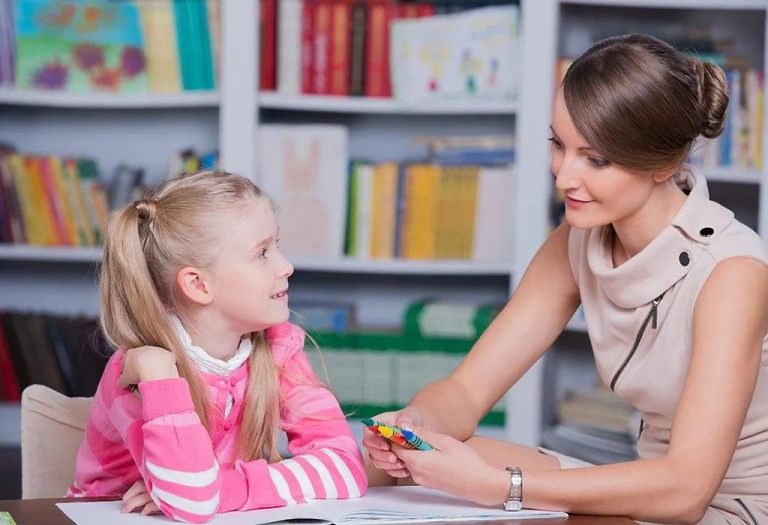
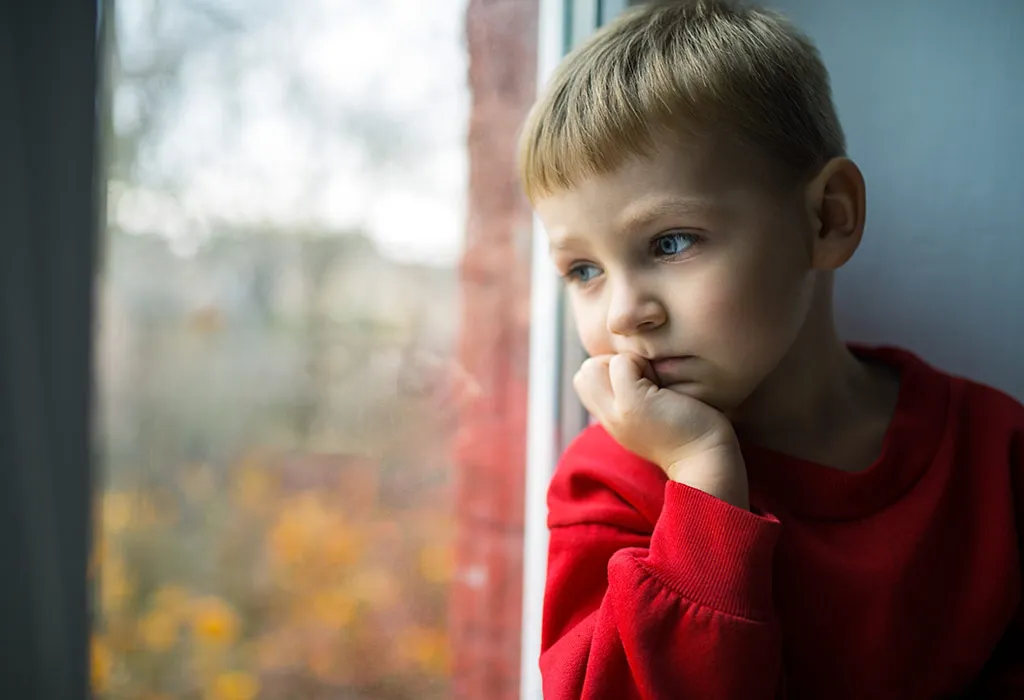
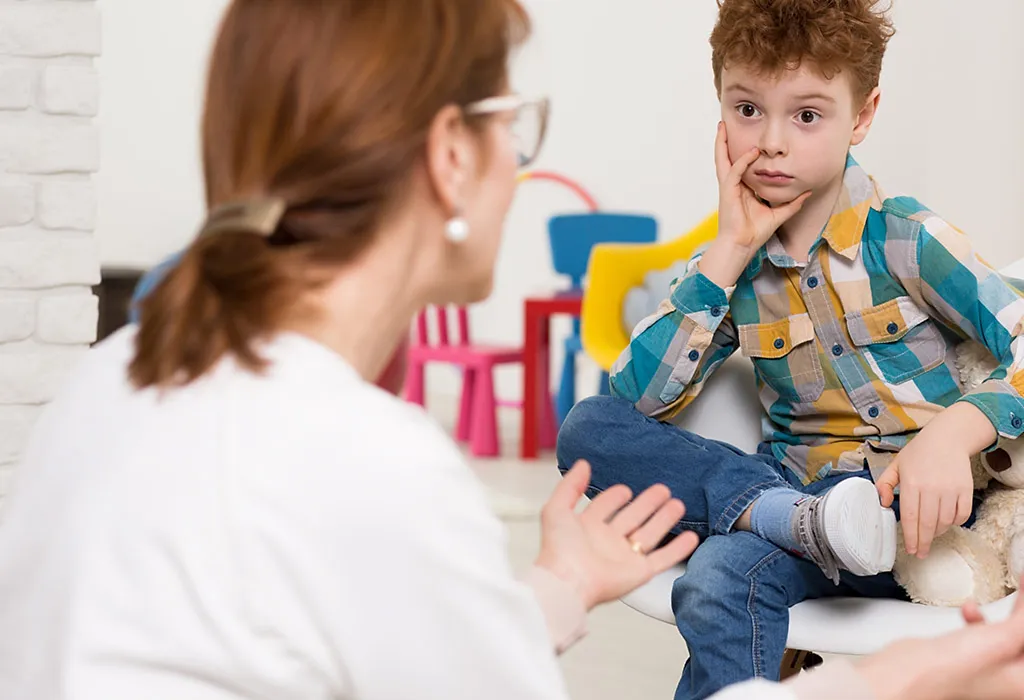
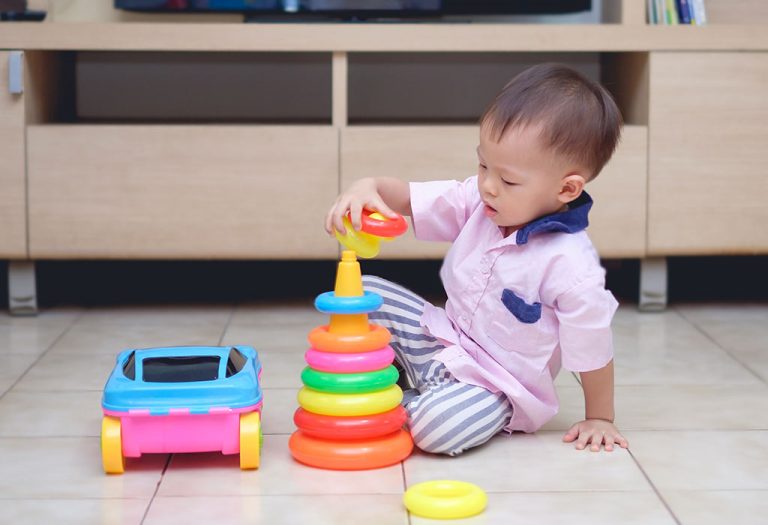

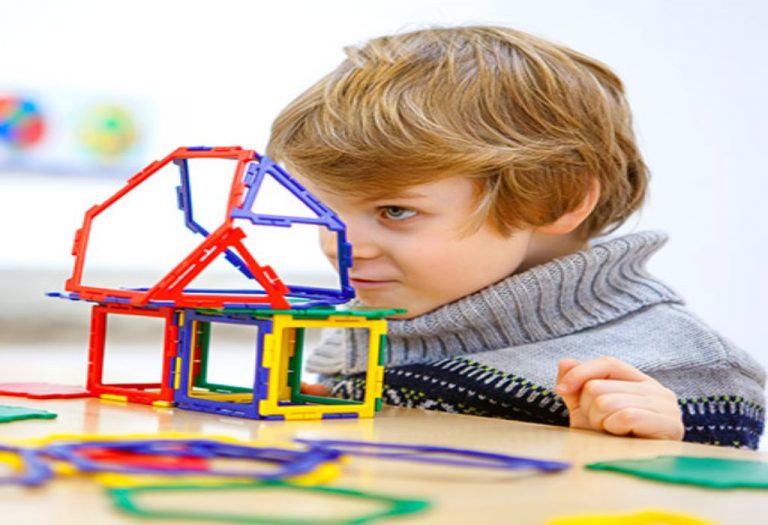
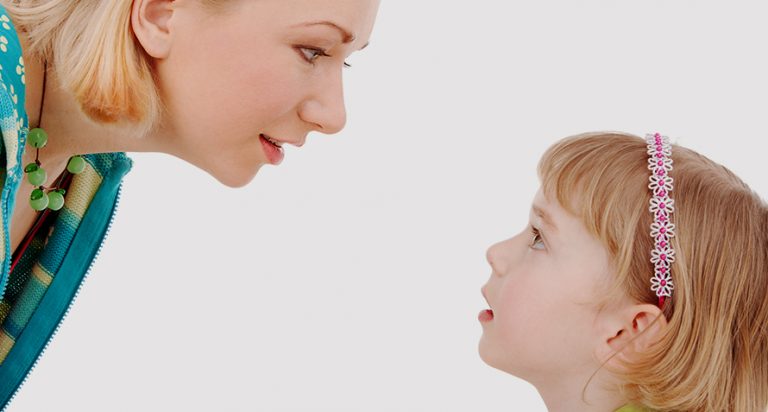
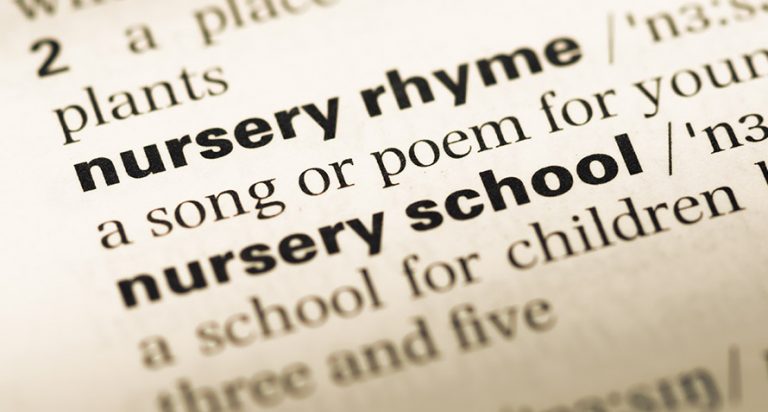


.svg)
















